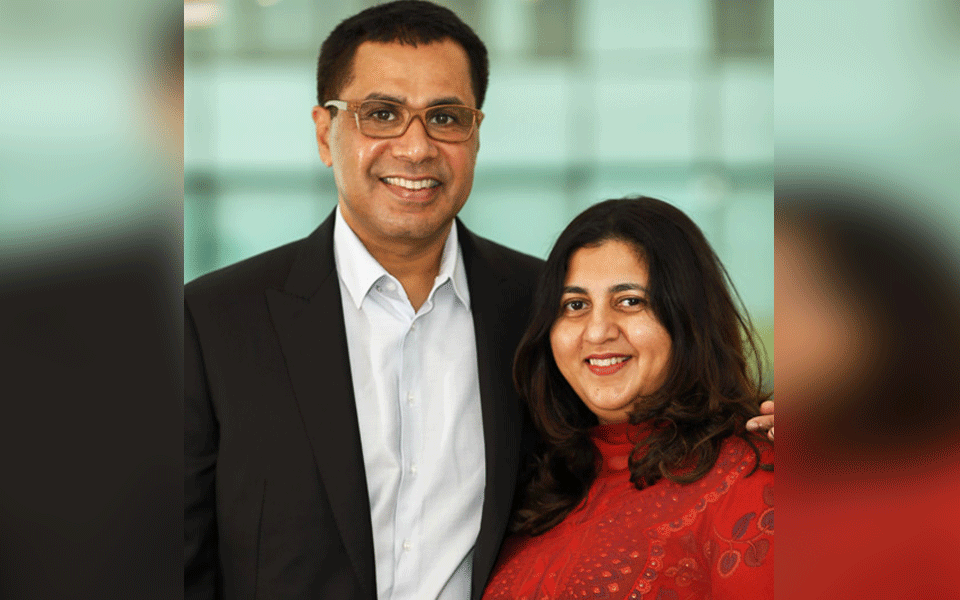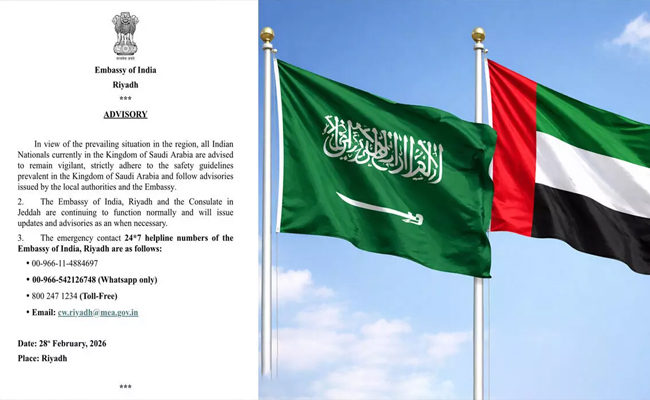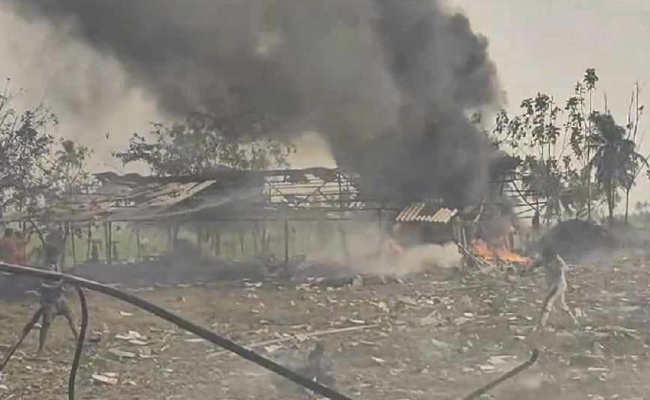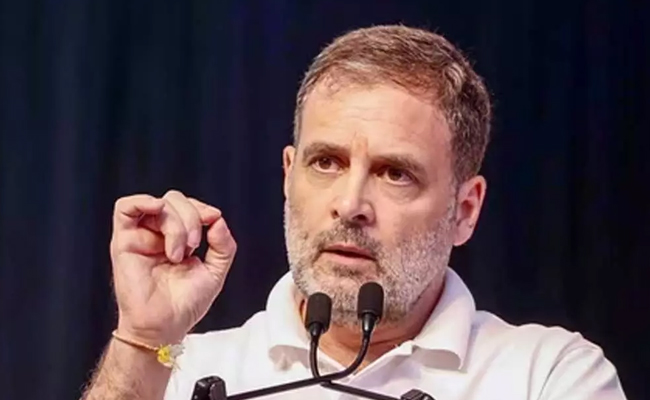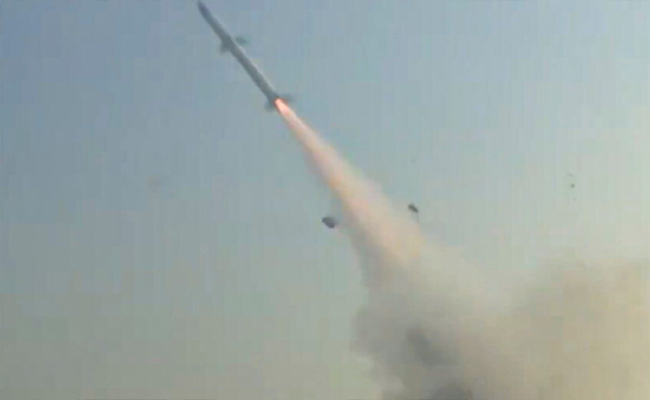London: Faizal Kottikollon and his wife Shabana Faizal of the Faizal and Shabana Foundation on Sunday signed the 2022 Responsible Tourism Charter at the Magna Carta Island in London.
The duo signed the charter on the same table on which Magna Carta was signed by King John in 1215.
The youngest daughter of Faizal and Shabana, Czarina also signed the charter and has become the youngest person globally to sign the charter.
Faizal is a United Arab Emirates-based Indian entrepreneur and philanthropist. He is the founder and chairman of KEF Holdings – a diversified company known for establishing technologically integrated enterprises across multiple industries.
He along with his wife Shabana, daughter of a well-known community leader and Founder of B.A. Group, Late B.Ahmed Haji Mohiuddeen, founded the Faizal and Shabana Foundation in 2007 with the vision of – Giving to Create Impact.
“We believe that by introducing sustainable programs and positive interventions, we are providing building blocks for people and communities to be empowered and build their own positive and happy future. Our aim is to be a catalyst towards building a more equitable, positive, happier, and better tomorrow for all, for generations to come.” The official website of the foundation reads.
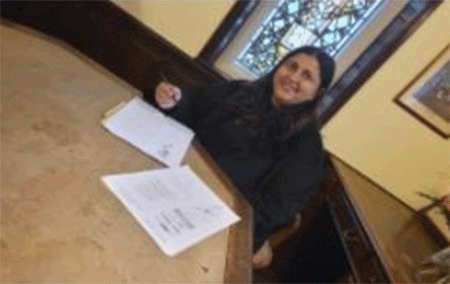
(Shabana Faizal)
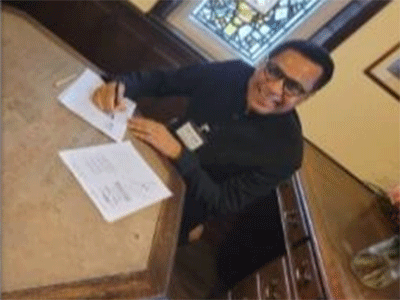
(Faizal Kottikollon)
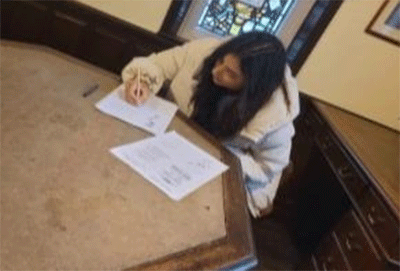
(Czarina)
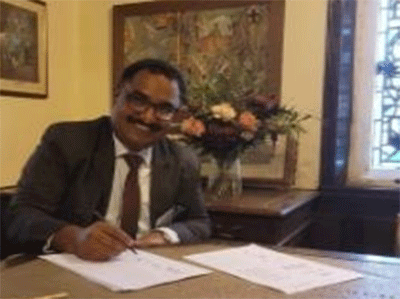
(Dr. Joseph)
Let the Truth be known. If you read VB and like VB, please be a VB Supporter and Help us deliver the Truth to one and all.
Dubai (PTI): The Indian missions in UAE, Saudi Arabia and Jordan among other countries in the Gulf region on Saturday issued advisories for its citizens urging them to “exercise utmost caution” and follow advisories issued by local authorities diligently.
The advisories came hours after the US and Israel launched a joint attack on Iran.
In the United Arab Emirates (UAE), the Indian Embassy at Abu Dhabi urged all Indian nationals in the country “to avoid unnecessary travel, take due care, remain vigilant, follow safety guidelines and advisories as and when issued by the UAE authorities and the Embassy.”
The Embassy of India, Abu Dhabi and the Consulate General in Dubai are continuing to function normally, it said in a post on X and also gave a Toll free number (800-46342) and a WhatsApp number (+971543090571) along with two email IDs (pbsk.dubai@mea.gov.in and ca.abudhabi@mea.gov.in) for Indian nationals there to contact in case of emergency.
The Embassy of India at Riyadh asked all Indian nationals in Saudi Arabia “to remain vigilant” and strictly adhere to the safety guidelines prevalent in the country.
In a post on X, it also asked them to “follow advisories issued by the local authorities and the Embassy,” and asserted that the Embassy of India, Riyadh and the Consulate in Jeddah are continuing to function normally and will issue updates and advisories as an when necessary.
The Embassy's post also provided emergency contact 24*7 helpline numbers: 00-966-11-4884697, 00-966-542126748 (Whatsapp only) and 800 247 1234 (Toll-Free), apart from email Id (cw.riyadha mea.gov.in).
The Indian Embassy in Jordan said in its advisory, “In view of the prevailing regional situation, all Indian nationals and tourists in Jordan are advised to exercise utmost caution, stay safe and follow advisories issued by local authorities diligently.”
The advisory, posted on the Embassy's social media channels, further advised all Indian tourists in Jordan to leave the country “immediately before operations of commercial flights get disrupted.”
The Indian Embassy in Jordan also gave a contact number (00962-770 422 276) in case of any exigency.
The Embassy of India in Bahrain too advised all Indian nationals in Bahrain to take due care, and “follow news and advisories as and when issued by the Embassy & local authorities.”
The Embassy said it is continuing to function “as usual” and also shared a 24×7 helpline number (00973-39418071) in view of the current regional situation.
The Representative Office of India to the State of Palestine at Ramallah advised all Indian nationals in Palestine “to remain vigilant” and observe locally advised safety and emergency procedures.
“Please exercise caution and avoid unnecessary movement,” it said in a post on X and gave contact details (+970592916418 or repoffice@mea.gov.in / cons.ramallah@mea.gov.in) in case of an emergency.
The joint US-Israel attack spread beyond Iran as its paramilitary launched drones and missiles targeting Israel. Bahrain said a missile attack targeted a US Navy fleet headquarters there while media reports said, quoting local witnesses, sirens and explosions could be heard in Kuwait, which is home to a base of US Army. Explosions could also be heard in Qatar.
Meanwhile, Iraq and the UAE said they have closed their airspace.

